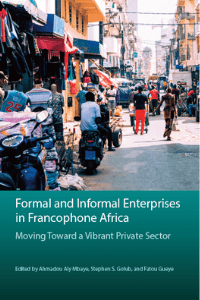On December 5, 2019, Afrobarometer released a report on Africa’s progress toward reliable energy access. The report uses findings from national surveys in 34 African countries to analyze gaps in energy access, grid reliability, and government performance.
As Figure 1 shows, on average, 42 percent of households in the 34 African countries surveyed are not connected to an electric grid. Of the households that are connected, an additional 14 percent have a connection that works half or less of the time, indicating major gaps in both energy access and reliability. However, the African countries surveyed are highly heterogenous: Access is nearly universal and highly reliable in Mauritius, Morocco, and Tunisia, but more than three-quarters of households in Burkina Faso, Uganda, Liberia, and Madagascar do not have a connection to an electric grid. Reliability is also a major issue in countries such as South Africa, Nigeria, Cameroon, and Malawi, where over one-third of households have a connection that works half or less of the time.
Figure 1: Reliability of access to electric grid
Source: Afrobarometer 2019.
The surveys also addressed the issue of government performance, asking respondents how well or badly they would say their current government was providing a reliable supply of electricity. Figure 2 shows that on average, only 45 percent of respondents said their government was doing a good job at providing electricity. Responses were most positive in Mauritius, Botswana, and Ghana, and least positive in Guinea, Madagascar, and Malawi, where less than 20 percent of respondents expressed a positive view of government performance. Views on government performance were strongly correlated with level of access to the grid.
Figure 2: Perception of government performance in provision of electricity
Source: Afrobarometer 2019
The report states that efforts to improve energy access and reliability have mostly stalled across the surveyed countries, with only marginal improvement from survey findings in 2016. Additionally, access remains very low among those living in rural areas: Rural respondents were less than half as likely as urban respondents to have access to a power grid. More effort needs to be taken to improve reliable electricity access for all, as electrification is a foundational need to achieve many development objectives.
The Brookings Institution is committed to quality, independence, and impact.
We are supported by a diverse array of funders. In line with our values and policies, each Brookings publication represents the sole views of its author(s).









Commentary
Figure of the week: Progress toward reliable energy access in Africa
December 12, 2019